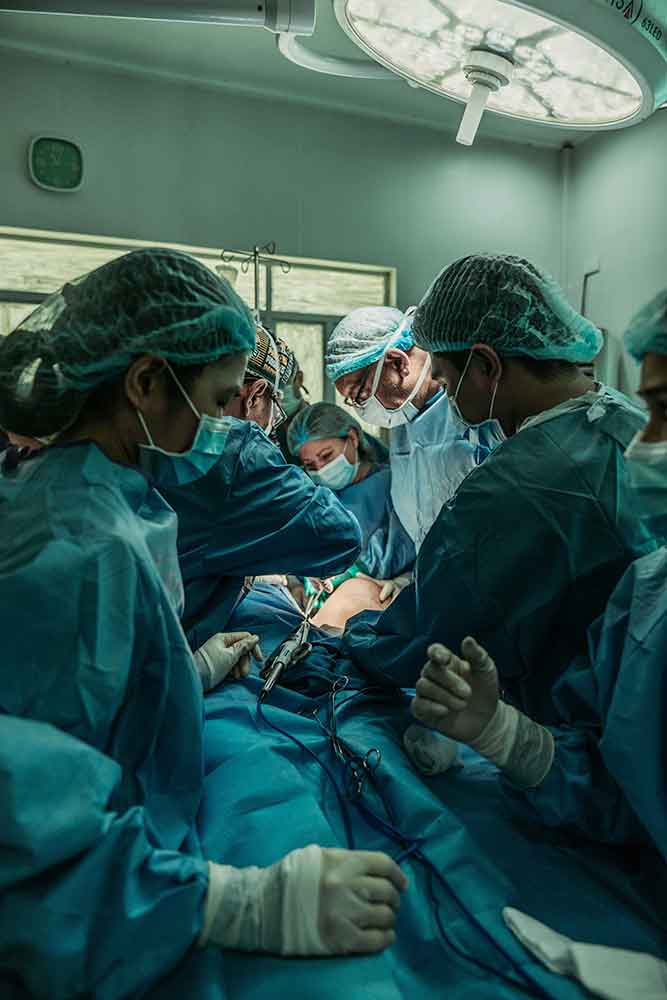May Feeding Tubes Be Pulled If I’m Brain-Dead?

jc-gellidon/unsplash
Question: The Catholic Church strictly forbids euthanasia, that is, the intentional ending of a life at the request of a terminally ill patient. But what is the Church’s position on refusal of food and hydration, which a Catholic might request in their health care directives and living wills for situations where they may be brain dead or in a permanent vegetative state?
Answer: The questions of preservation of unresponsive life are complicated even in the legal domain. In Catholic teaching, there is an obligation to use ordinary means to preserve the person’s life, but one is permitted to forgo extraordinary means.
In most situations, artificial nutrition and hydration, usually through feeding tubes, would be considered ordinary means. Extraordinary means might include interventions such as breathing machines.
However, particular circumstances may override the presumption of ordinary means, and if the provision or continuation of medically assisted feeding would cause significant discomfort, it becomes morally optional.
In such situations, one must weigh the benefits and burdens, and here the intention is paramount: If the intention of removing a feeding tube is to end the patient’s life, that would be immoral; but if the intention is simply to discontinue a burdensome treatment that is not being assimilated by the patient and is instead causing significant discomfort, it would certainly be moral to remove it.
The Catechism of the Catholic Church counsels: “Discontinuing medical procedures that are burdensome, dangerous, extraordinary, or disproportionate to the expected outcome can be legitimate; it is the refusal of ‘over-zealous’ treatment. Here one does not will to cause death; one’s inability to impede it is merely accepted. The decisions should be made by the patient if he or she is competent and able or, if not, by those legally entitled to act for the patient, whose reasonable will and legitimate interests must always be respected.”
The risk of shortening the days of a patient through reasonable measure, such as the provision of painkillers, “can be morally in conformity with human dignity if death is not willed as either an end or a means, but only foreseen and tolerated as inevitable” (No. 2278-9).
Burden vs benefit
The website catholicendoflife.org, a very useful resource, notes that there are many factors that must be considered when making a “burden/benefit” analysis, “including the nature of the treatment, the cost, the prognosis, the side effects, the pain, as well as emotional consequences. Each judgment is unique, and is not a medical but a moral judgment. Each patient, or their proxy decision-maker, should pray for guidance and graces, seek counsel from their family and trusted spiritual adviser, and gather all pertinent information from the medical professionals.”
Since there are so many circumstances governing the state of an unresponsive patient, it is not easy to formulate a blanket directive that would morally cover all situations. The US National Catholic Bioethics Center suggests this helpful formulation for an advance directive:
“I wish to follow the moral teachings of the Catholic Church and to receive all the obligatory care that my faith teaches we have a duty to accept. However, I also know that death need not be resisted by any and every means and that I have the right to refuse medical treatment that is excessively burdensome or would only prolong my death and delay my being taken to God.”
Asked and answered the June 2023 issue of The Southern Cross magazine
- Furgione Graduates Rome Film School with Honours - March 3, 2026
- Mass Readings: 8 March – 15 March, 2026 - March 3, 2026
- Pope Leo: Jesus is Living Wisdom - March 2, 2026





